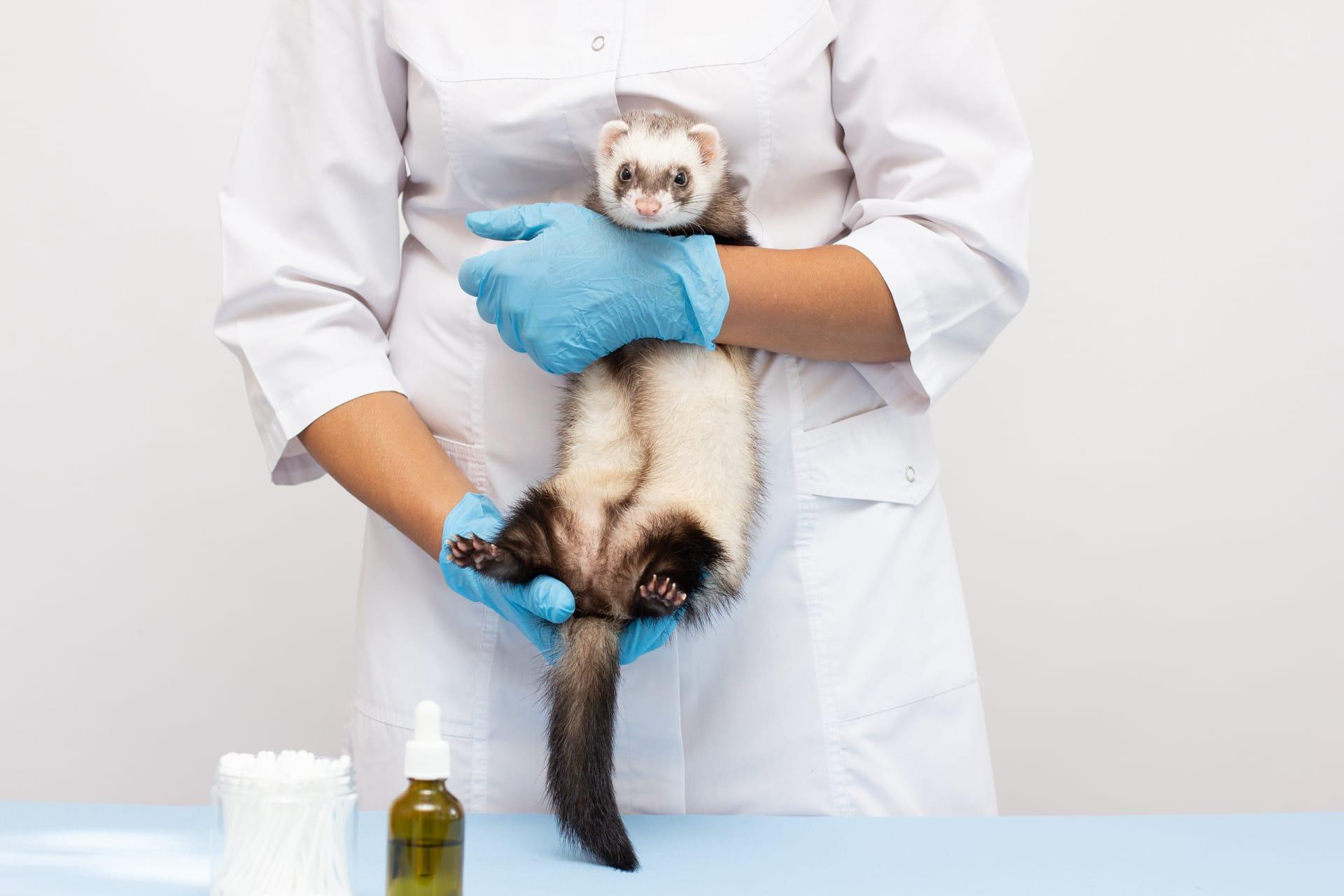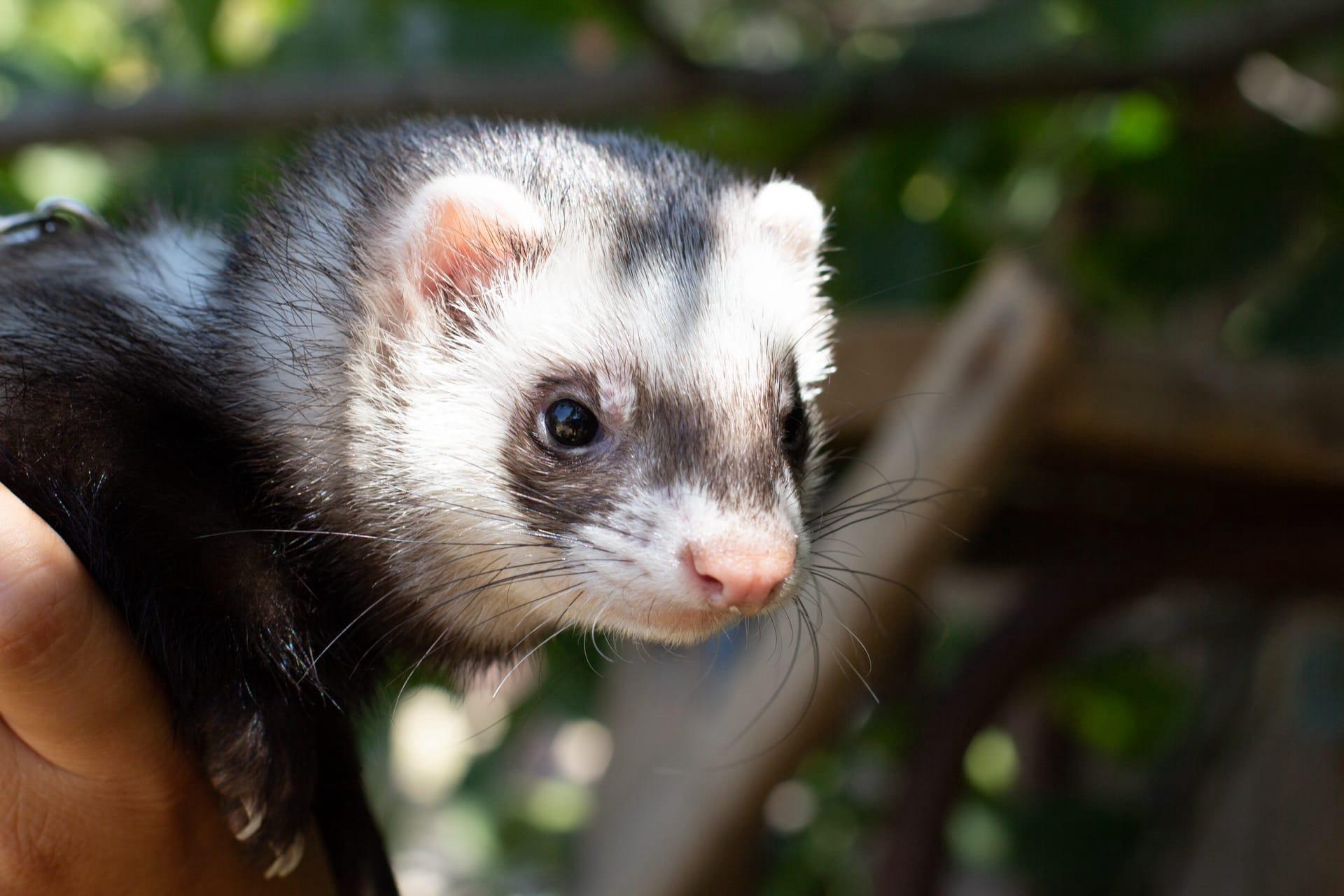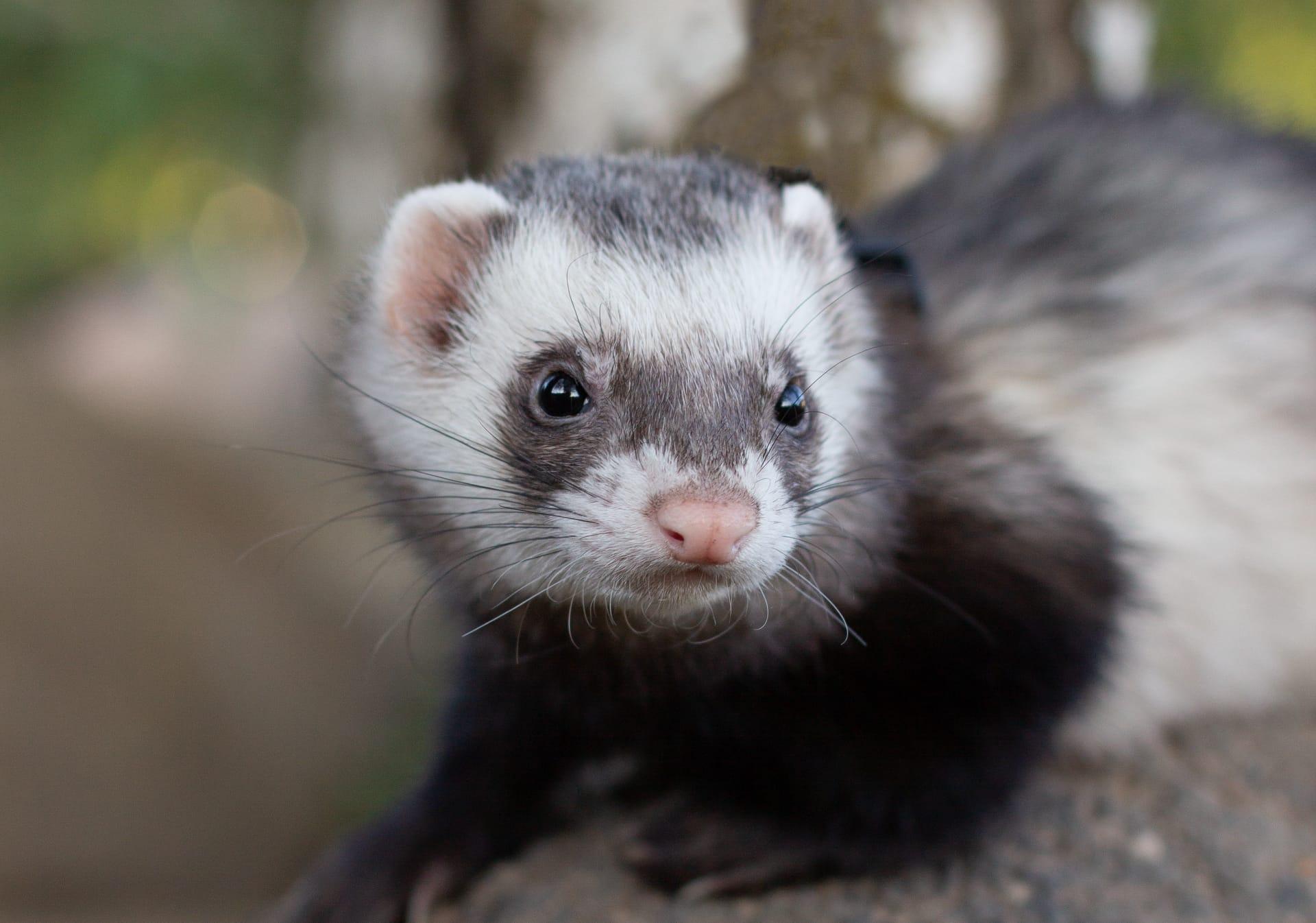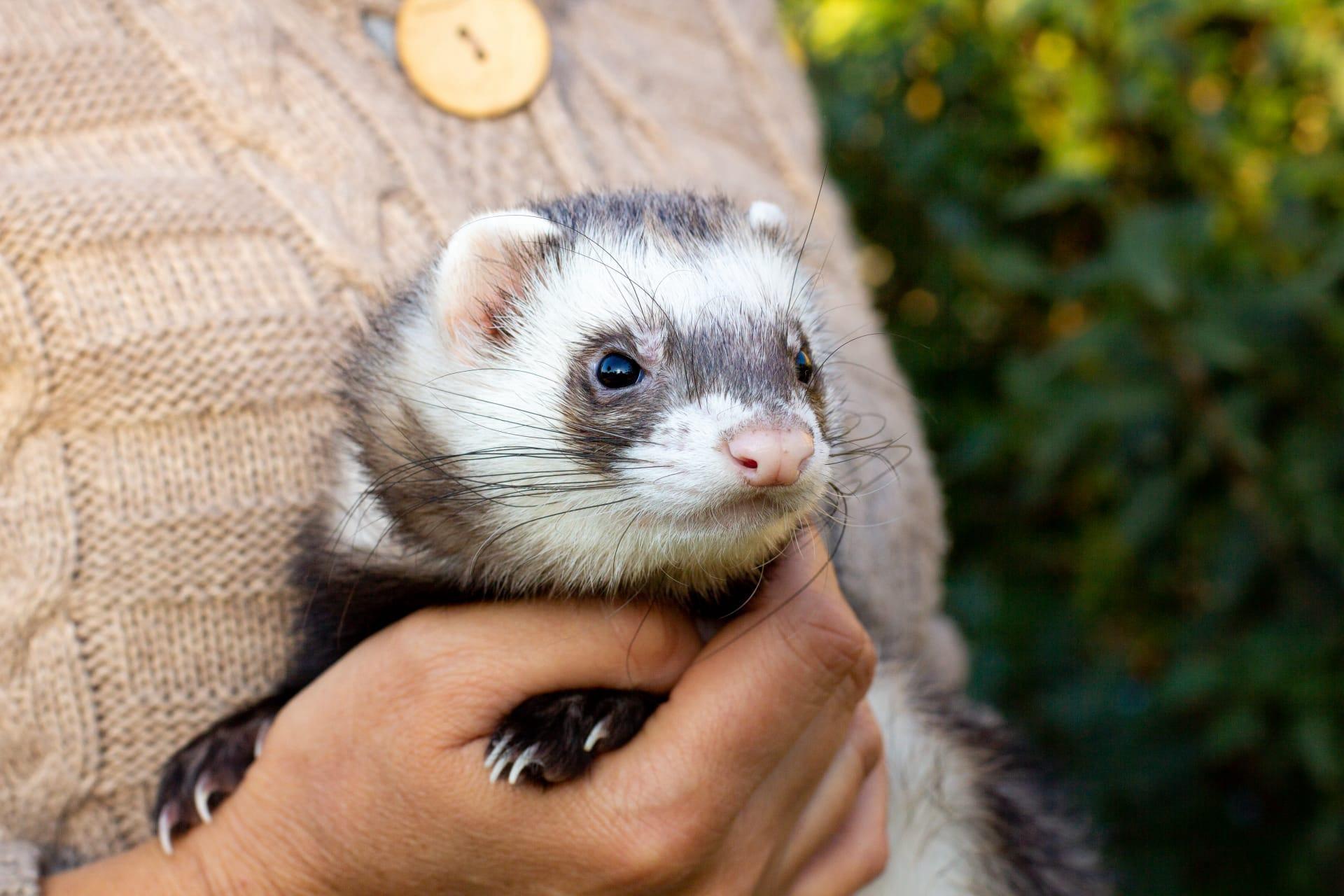Ferret Trivia
- Home /
- Trivia Question /
- Animal /
- Ferret Trivia
1
Question: How long do ferrets live and what factors influence their lifespan?
Answer: Ferrets typically live for 6 to 10 years, though some may reach up to 12 years with excellent care. Their lifespan is influenced by various factors including genetics, diet, exercise, and regular veterinary care. A well-balanced diet high in protein and low in carbs, along with a clean, safe living environment, significantly contributes to their longevity.
Question: What unique physical adaptations do ferrets have for their hunting lifestyle?
Answer: Ferrets are naturally equipped with a slender, flexible body, allowing them to pursue prey into narrow burrows. They have sharp, carnivorous teeth for catching and eating small prey. Their keen sense of smell and hearing further aids in hunting, making them effective predators despite their small size.

2
Question: Is it true that ferrets are smelly animals?
Answer: Ferrets have a natural musky odor due to their anal scent glands, similar to skunks, though not as strong. Neutering or spaying reduces this scent significantly. Regular cleaning of their habitat and proper diet also help in minimizing the odor.
Question: Can ferrets be trained like dogs or cats?
Answer: Yes, ferrets can be trained to a certain extent. They are intelligent and can learn to use a litter box, perform tricks, and respond to their name. Consistency and positive reinforcement are key in training ferrets, just like with dogs and cats.

3
Question: What do ferrets eat in the wild, and how does this translate to their diet in captivity?
Answer: In the wild, ferrets are obligate carnivores, primarily feeding on small mammals like rodents. In captivity, their diet should mimic this, focusing on high-quality meat-based ferret food. Occasional treats can include raw or cooked meats. Avoid foods high in sugar or carbohydrates, as ferrets can't digest these well.
Question: How do ferrets communicate with each other and their human owners?
Answer: Ferrets communicate through a series of vocalizations, body postures, and scents. They make chuckling sounds when happy, hiss when upset or scared, and scream in distress. They also use body language, such as dancing and hopping, to show excitement and playfulness.

4
Question: What are common health issues in ferrets, and how can they be prevented?
Answer: Common health issues in ferrets include adrenal gland disease, insulinoma (a type of pancreatic tumor), and gastrointestinal issues. Prevention includes regular veterinary check-ups, a proper diet, and avoiding stress. Monitoring their behavior and physical condition closely helps in early detection of these issues.
Question: Do ferrets require a lot of space and exercise?
Answer: Ferrets are active and curious animals needing ample space to explore and play. A large, multi-level cage is ideal for their living quarters. However, they also require supervised playtime outside the cage daily to satisfy their need for exploration and exercise.

5
Question: Can ferrets get along with other pets like dogs and cats?
Answer: Ferrets can coexist with other pets like dogs and cats, provided they are introduced properly and supervised. It's crucial to consider the individual temperament of each animal. Not all ferrets, dogs, or cats will get along, so monitoring their interactions is key.
Question: What kind of sleeping environment do ferrets prefer?
Answer: Ferrets love cozy, enclosed sleeping areas. They enjoy sleeping in hammocks, soft bedding, or small boxes within their cage. Providing various options allows them to choose their favorite spot, ensuring they feel secure and comfortable while resting.